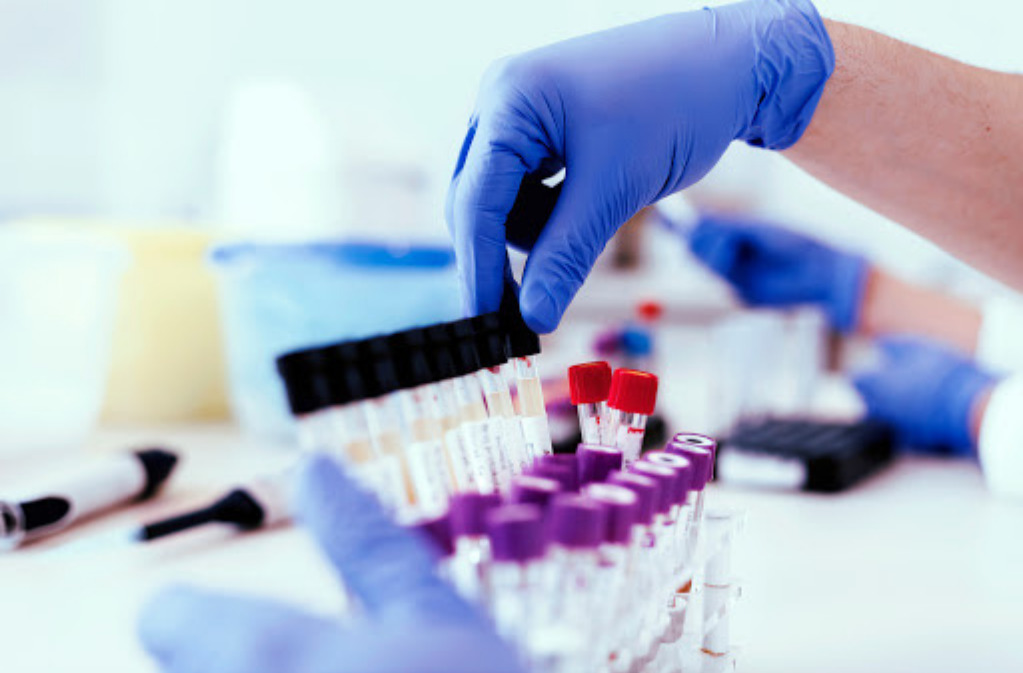3 min read
Pre-Employment Drug Tests: Everything You Need To Know
![]() AccuSourceHR, Inc.
:
May 24, 2021 3:27:37 PM
AccuSourceHR, Inc.
:
May 24, 2021 3:27:37 PM

Pre-employment drug tests are one of several pre-emptive screenings employers can opt for during the hiring process. Maintaining a drug-free workplace can prevent accidents or injuries on the job. For certain industries, taking extra precautions is important for safety reasons. If employees will be operating heavy machinery, for example, you need to ensure that they are able to do the job safely.
If you are considering drug testing, deciding on a fair drug testing policy that meets your company’s needs can be complicated. There are many local, state, and federal laws to consider, as well as industry specific requirements and guidelines. While pre-emptive drug screenings are legal, precise laws vary depending on where you live. You also must determine which type of test to order; not all drug tests screen for the same substances.
If you are looking into pre-employment drug tests, we have provided a brief guide below to answer the most common questions employers have.
What Do Drug Tests Screen For?
This depends on the type of drug test you order.
A standard 5-panel drug test is the most common option. It typically screens for what is called the “NIDA 5,” NIDA referring to the National Institute on Drug Abuse. A 5-panel test will check for recent usage of marijuana, amphetamines, cocaine, opiates, and phencyclidine (PCP).
You can order more extensive tests as well. A 10-panel test, for example, screens for the NIDA 5 as well as benzodiazepines, barbiturates, methadone, methaqualone, and propoxyphene.
With more comprehensive testing, take extra precautions to ensure legal compliance. The Americans With Disabilities Act (ADA) has strict guidelines surrounding testing for prescription medications. A 10-panel test checks for types of narcotics taken for medicinal purposes. An employee might test positive for benzodiazepines, for example, but medical review officers would have to report the test as negative if that employee had a valid prescription for a drug like Ativan.
In very rare cases, there are exceptions to this rule. If the use of a prescription medication would pose a legitimate safety risk to others, you may be able to ask candidates about their prescription medication use during the hiring process and potentially order a more comprehensive test. Those who handle heavy machinery, for example, could be asked whether they use prescription medications that cause drowsiness or loss of concentration.
Are Pre-Employment Drug Tests Legal?
All federal, state, and private employees are subject to drug testing. In most cases, it is legal to do pre-emptive drug screenings for the NIDA-5, but each state has unique guidelines surrounding testing. In California, for example, you can only drug test an employee after giving them a formal offer.
You can also drug test current employees, but in most cases only if you have “reasonable suspicion” of drug use. What constitutes reasonable suspicion varies, but it can include things like abnormal conduct, erratic behavior at work, or reports from reliable sources that an employee is abusing drugs.
In the vast majority of cases, you can also legally conduct drug testing as part of an investigation after an accident. If a construction worker crashed a bulldozer, for example, your company could require they take a drug test.
How Do Changing Marijuana Laws Affect Drug Testing?
In recent years, multiple states have made marijuana legal for medicinal and recreational purposes. Currently, there are no federal restrictions on an employer’s ability to drug test for marijuana. However, these 11 states have explicit employee protections regarding marijuana use:
- Arizona
- Arkansas
- Connecticut
- Delaware
- Illinois
- Maine
- Minnesota
- Nevada
- New York
- Pennsylvania
- Rhode Island
The protections vary on a state-by-state basis. The majority of anti-discrimination or reasonable accommodation laws only apply to use of medicinal marijuana. However, some states explicitly prohibit refusing to hire someone on the basis of a positive drug test alone, so always look into specific laws in your area.
Laws surrounding marijuana tend to change frequently. Maine, for example, once prohibited employers from taking disciplinary action for marijuana use outside of a company’s premises. That law changed in 2018, removing that restriction. This is why staying up to date with regulations in your area is so important to stay compliant.
With the legalization of cannabis in many states, AccuSourceHR™ Workforce Solutions offers drug testing options that are customized to your needs and can omit testing for THC if desired.
Pre-Employment Drug Testing: The Bottom Line
Pre-employment drug testing can prevent bad hiring decisions that put others at risk. A standard 5-panel test is considered legal in the vast majority of states, but more comprehensive testing comes with more restrictions. Recent changes in marijuana laws nationwide have also impacted regulations surrounding pre-employment drug tests.
If you decide drug testing is in your company’s best interest, do your research carefully to ensure legal compliance and be transparent with potential employees about the process. The benefits of a safer, more productive workforce outweigh the drawbacks.
If you are considering pre-employment testing, AccuSourceHR™ Workforce Solutions can work with you. We will help you identify the right test for your company’s needs and provide guidance on testing regulations in your area. Learn more here.
